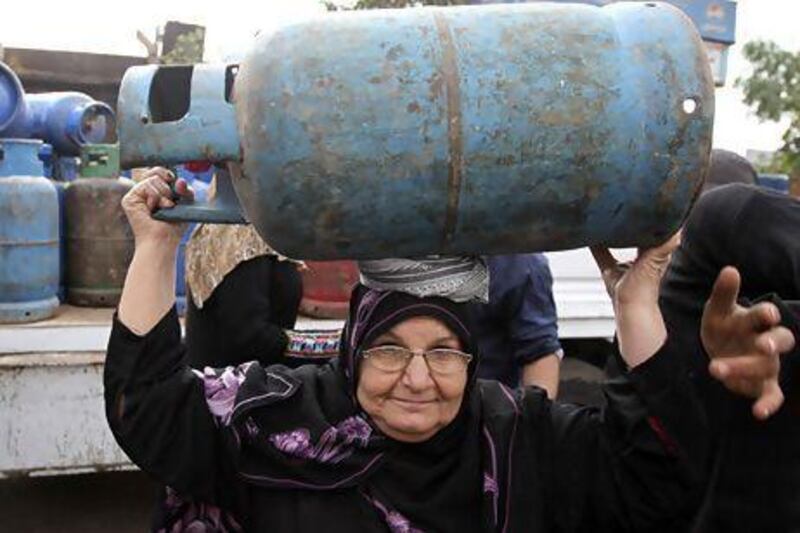Aluminium Bahrain's profits last year were down by more than half, as revealed in the results announced last week. Contributing to Alba's pain was some cautious surgery - a 50 per cent rise in gas prices to US$2.25 per million British thermal units. By comparison, American consumers pay $3.15, British $10.30 and Japanese $17.30.
Economists generally agree the Middle East's low gas prices are a bad thing - Saudi Arabia's, at $0.70, are far below even Bahrain's. Cheap, subsidised fuel encourages wasteful consumption and emissions of greenhouse gases, and blocks renewable energy. Underpricing leads to shortages - new, more expensive gas cannot be produced commercially, while demand escalates uncontrollably.
As shortages strike, the government has to step in to make arbitrary decisions on allocating the gas - usually so that big, politically connected industries or vocal consumers benefit at the expense of everyone else. The wealthy - the heaviest energy users - gain more than the poor.
And illogical pricing causes perverse outcomes, as Kuwait today imports expensive liquefied natural gas (LNG) from as far afield as Australia or Russia, instead of extracting its own gas at lower cost.
Indeed, Egypt will soon join the UAE as countries that both import and export LNG - a clear case of distorted policy.
Surgery is inevitable, but governments tremble before they make the first incision. They are concerned that raising gas prices may kill industries - aluminium, steel, petrochemicals - on which they relied to create jobs. This threat has been accentuated by cheaper gas in the United States, driven by its shale revolution - which is enticing petrochemical producers to return. Higher Middle East prices may push up electricity tariffs, stoke inflation and fuel discontent among ordinary people.
Given these problems, how should the operation proceed?
The first step is to discuss with the patient clearly what is required: to reach with industry and consumers a consensus on why current gas prices are unsustainable, what the long-term target should be, and what the path is for getting there. In the Arabian Gulf, the target price could be that of imported LNG (very high), or the - probably lower - cost of developing new domestic gas.
Governments also need more basic data and economic research. What are the competing fuels? What price can each group or industry tolerate? How do higher bills affect consumers and the wider economy?
Increases can be phased in steadily and carefully, the impacts carefully monitored. Bahrain, Egypt and Oman have raised their tariffs modestly.
Of course, the earlier reform begins, the less painful it will be - and it has already been delayed too long. At the same time, bills for electricity and water should rise to reflect the utilities' higher costs.
This raises tricky questions. Should existing energy-intensive industries be given time, say 10 years, to adapt? Do information and subsidies for energy-efficient equipment help businesses and households?
How can low-income consumers and other selected groups be protected? (For example, Iran used direct cash transfers to compensate for raising fuel prices.) Should the authorities act to restrain inflation - something they failed to do in Iran - or treat it as a one-off increase?
To allow higher prices to create more supply, governments need to restructure their gas production sectors, attract international investment and expertise, and ensure their state companies understand the urgency of developing new fields.
"If economists could manage to get themselves thought of as humble, competent people on a level with dentists, that would be splendid," said John Maynard Keynes, the great British economist. Practical plans for reform of the Middle East's gas markets do not have to be as painful as pulling teeth.
Robin Mills is the head of consulting at Manaar Energy, and the author of The Myth of the Oil Crisis and Capturing Carbon





